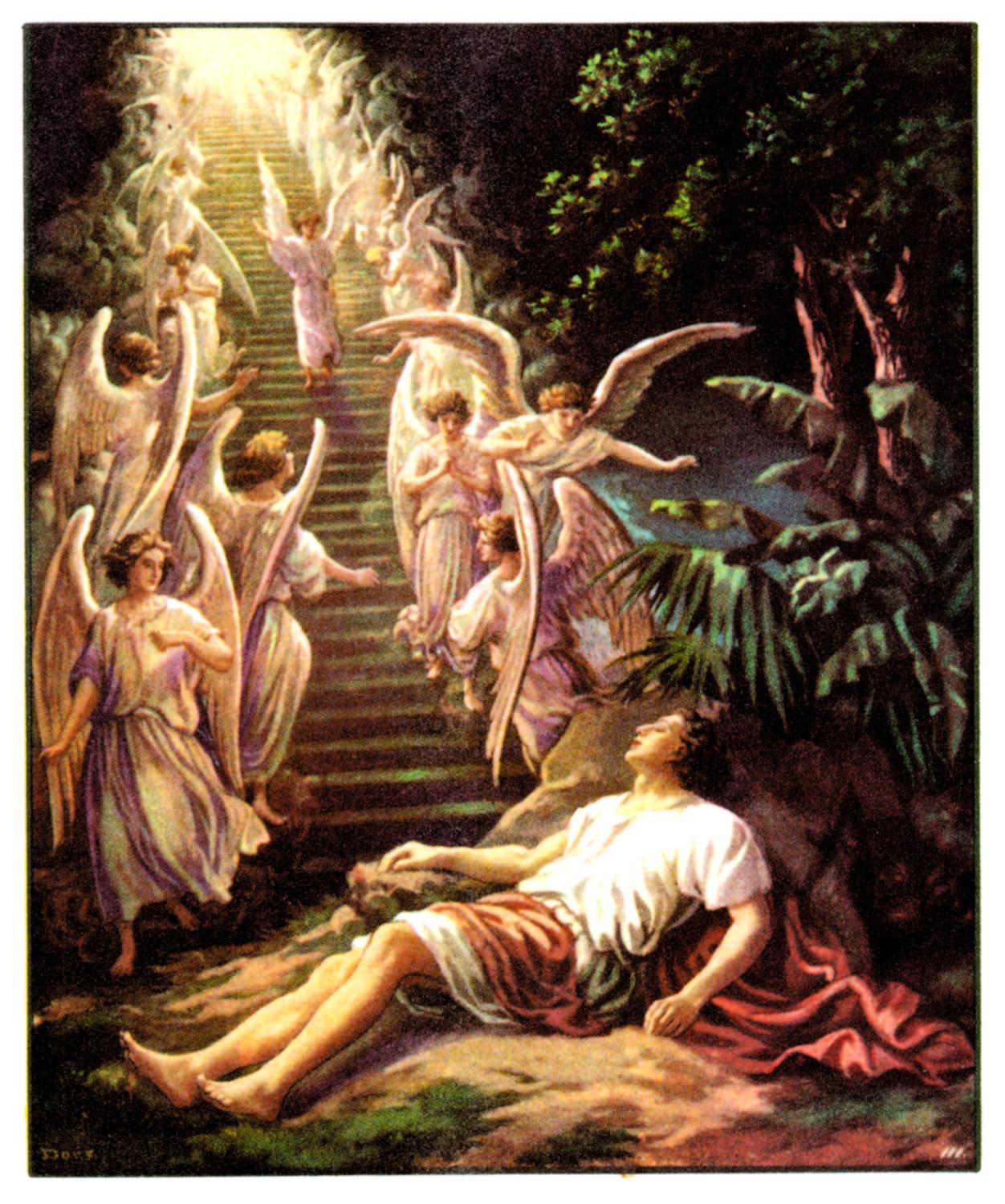+
JMJ
December 5
Yesterday, we talked about Abraham and his son, Isaac.
When Isaac grew up, he married a woman named Rebecca and they had twin boys; Jacob and Esau.
Esau was born first, with Jacob hanging onto his brother’s heel!
Now being the first born was very important. The first born had the right to Isaac’s special blessing.
The one who received it would receive the 3 promises that God made to Abraham; the promise of land, kingship and world wide blessing for his descendants.
Perhaps their father did not know of this agreement. At any rate, the day came when Isaac, being old and blind decided to give the special blessing of the first born to Esau before he died.
Isaac’s wife, Rebecca loved her son Jacob best and wanted him to receive the blessing instead of Esau, so while Esau was out hunting, Rebecca dressed Jacob up in Esau’s clothes. Old blind Isaac was tricked into giving Jacob the blessing of the first born instead.
Perhaps Jacob felt he should have the blessing anyway, since Esau had sold him the birthright, but even so Jacob was punished for lying to his father. When Esau returned home from hunting, he became so angry with Jacob, that Jacob had to leave home. For many years Jacob would live with the fear of his brother’s anger. During his life, as we shall see, Jacob would also suffer from the lies and deceit of others.

So Jacob left home and went to live with his parent’s relatives. On the way he fell asleep and had a dream. He dreamed of a ladder reaching up to heaven with angels going up and down
God said to Jacob;
“I am the Lord God of Abraham thy father, and the God of Isaac; the land wherein thou sleepest I will give to thee and to thy seed…and in thee and thy seed all the tribes of the earth shall be blessed” (see Gen28: 12-15)
So God showed he accepted Jacob as the one to whom the blessing would be passed down. Jacob’s descendants would be blessed with the 3 promises God made to Abraham. (Can you remember what they are and who would fulfill them?)
Jacob lived with his relatives for many years. He fell in love with a girl named Rachel. Rachel was very beautiful, but her older sister, Lea was homely. Jacob agreed to work for 7 years for the privilege of marrying Rachel. However, after 7 years he was tricked into marrying Lea instead! At that time, it was allowed to have more than 1 wife, so Jacob had to work another 7 years to marry Rachel.
Finally, after many years Jacob returned to his own country but he worried that Esau still wanted to kill him. Jacob sent presents ahead to his brother. That night, in a dream Jacob wrestled with an angel. Finally Jacob won and the angel gave him God’s blessing. God changed Jacob’s name to Israel; which means Overcomer.
Now the Chosen People have another name;
They were called Semites because they were descendants of Noe’s son Sem.
They were called Hebrews because they were descendants of Heber.
Now they are called Israelites because they were descendants of Jacob, whom God renamed Israel.
In the end, Jacob and Esau became friends. Before we go on with the history of Jacob, we shall talk about one of Esau’s descendant’s Jobab, king of Edom, whom we call Job.
Job was a rich man and faithful to God and God was pleased with Job.
But the devil said to God; “Job is only faithful because he is prosperous. If he lost everything, he would turn away from you.”
God allowed the devil to try Job, so as to be an example of faithfulness to others. First Job lost all he owned, then he lost his family then he got sick. Job's friends thought he must have done something terrible to merit so much suffering so Job lost all his friends as well.
Through it all, though, God sustained Job by His grace, and Job was faithful to God, saying, “The Lord gave and the Lord hath taken away: as it hath pleased the Lord so is it done: blessed be the name of the Lord.” (Job 1:21)
God blessed Job for his faithfulness, and gave him twice as much as he had before. This is such a beautiful part of history. It helps us to remember that God is a good and loving Father. He rewards our faithfulness on earth (but not always in this world). All that we could ever suffer here below will seem as nothing, but our happiness will last for all eternity.

Comments
Post a Comment